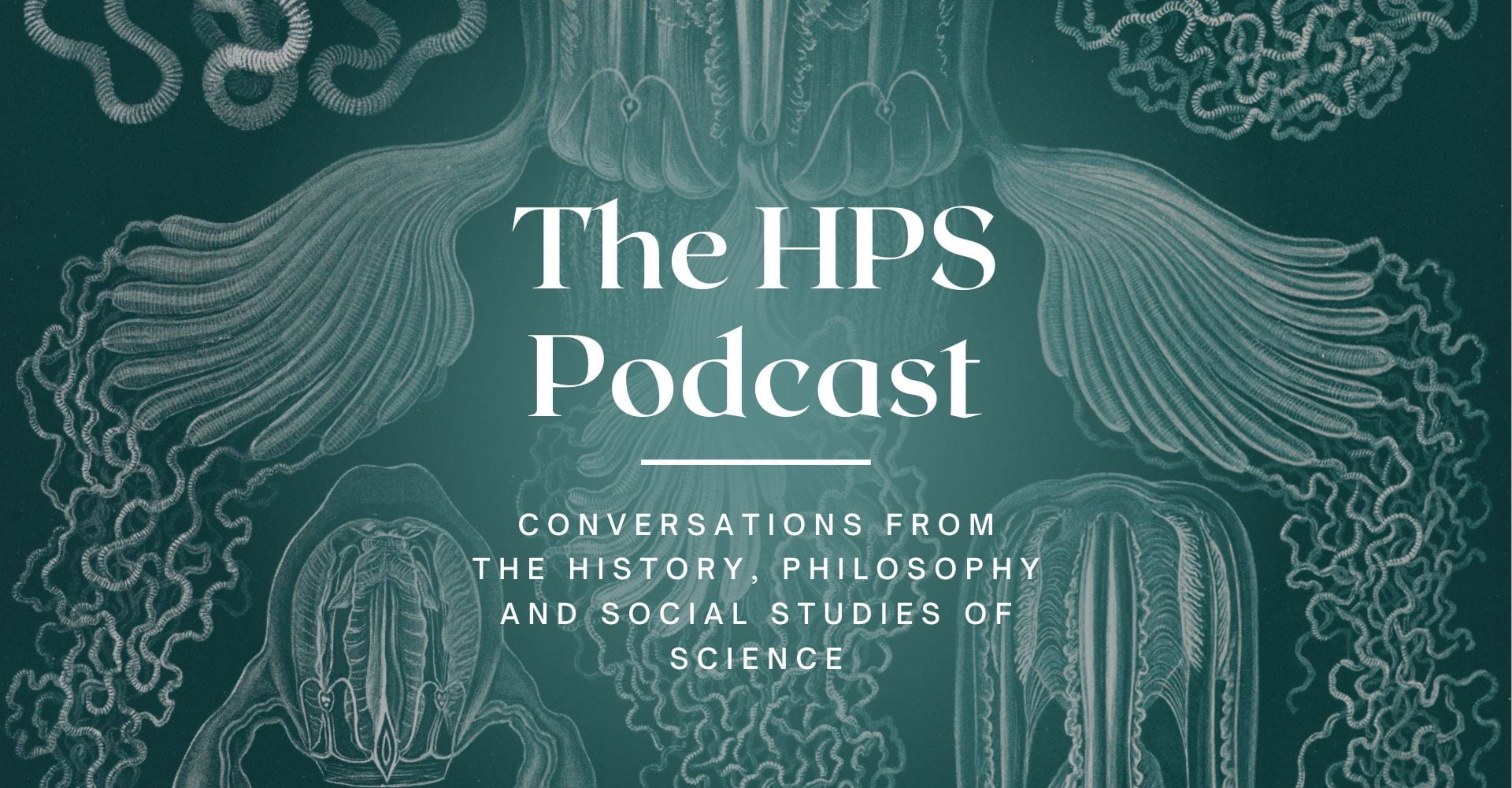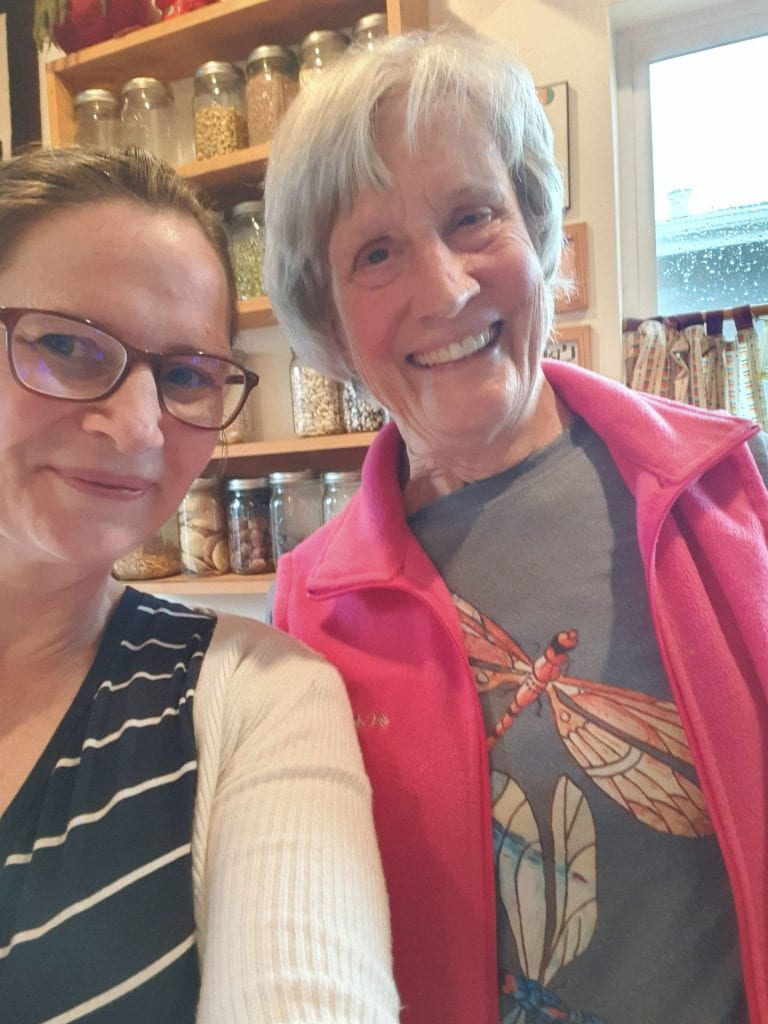
The HPS Podcast is Here!
On May 31, a new SHAPS contribution to public outreach and engagement was released. The HPS Podcast shares fascinating contemporary research in History and Philosophy of Science with those outside the discipline. Each episode is designed to be short, engaging and entertaining. Covering a wide range of topics, this is a podcast for anyone with a fascination for history, philosophy, psychology, sociology, human inquiry and those who simply wish to broaden their minds.
The podcast is produced by scholars and students in the History and Philosophy of Science Program in SHAPS, including the core team of Professor Fiona Fidler (founder and HPS Head of Program), PhD candidate and former Forum writer Samara Greenwood (presenter and editor), and producer, web maestro and social media star, HPS Honours student, Indigo Keel. They interview and collaborate with a variety of established and emerging scholars from around the world.

In the first episode, Samara interviewed a member of ‘HPS Royalty’, Donna Haraway, who highlights the important role of narrative and storytelling in the sciences.For Donna, storytelling in science involves being aware of how important scientific narratives are to scientific practice, and to the ways science contributes to humanities broader ‘story’ of the world. Donna proposes that engaging in ‘polymath curiosity’ by reading more in the world of HPS and beyond can help scientists ensure they stay innovative and playful with their thinking. Donna also suggests ‘thinking about thinking’ is helpful. For example, not just considering relationships as being linear or hierarchical, but rather thinking in webs of interactions, like in the game of ‘Cat’s Cradle’. Ultimately, Donna would love everyone to appreciate more the camaraderie, sense of humour and exploratory capacities of good scientists.
You can find out more about the podcast on the short introductory episode, where we hear from Samara about HPS and the team and on the website’s recent blog post, reproduced below.
Hiding away in the Arts West building at Melbourne University is perhaps the most wide reaching and interdisciplinary of academic programs: the History and Philosophy of Science. The course of study at UniMelb is one of the oldest in the world, having been offered since 1946. Beyond simply studying how science works, HPS looks at how humanity, knowledge, nature and society intersect and interact over time and place. So many people – students, scientists, scholars and beyond – become fascinated with the field once they discover it. But it remains hard to find. The HPS podcast aims to bring to light all the richness the history, philosophy and social studies of science have to offer.
HPS can also be daunting for those who manage to find it. Studying everything from knowledge traditions in ancient Mesopotamia to debates over research methodology, from the impact of technology on learning to the history of magic, HPS is a multifaceted field and it can be hard to know where to start. Scientists turn to HPS to gain context for their work, looking to learn more about the history of their discipline and its place in today’s society. Many historians and philosophers have dipped their toes into HPS, being fascinated with the episodes of science and hoping to use their knowledge to delve into a new field. However, even with the wide range of possibility of study and rich institutional history, HPS remains one of the lesser known disciplines, the hidden gem of UniMelb. We want the history and philosophy of science to be as welcoming as possible, and therefore sought to create a path into the discipline which welcomed people with open arms. The HPS Podcast aims to be an easily digestible form to allow for an entry into a field with many facets, which combines so many different ideas in one place.
In 2022, Professor Fiona Fidler, the head of HPS at the University of Melbourne, began the process of creating the HPS podcast. Fiona began her academic career in psychology, but turned to metascience, and devoted her career to interrogating how experts, including scientists, make decisions and change their minds. Fiona believed a student-led podcast would be a great way to let more people know about our fascinating field and provide an accessible, and hopefully entertaining, entry point for engaging with useful but under-published research.
The first person recruited to run the podcast was Samara Greenwood. Samara is currently a PhD Candidate in HPS, which is quite a diversion from her first career as an architect. As well as studying the relationship between science and its societal contexts, Samara has tutored in HPS and interviewed HPS students, staff and alumni for the department’s research blog, Forum. As part of her doctoral research, Samara has presented at several national and international conferences, making it her mission to meet as many scholars in the HPS community as possible. Having spent time studying HPS, developing the HPS social group ‘HPS Chat’, interviewing scholars and gaining contacts at various conferences, Samara is well placed to produce the podcast.
For the first season, Samara has taken on the role of podcast host, editor and general production manager. However, she quickly realised she needed help, so Samara brought in Indigo Keel. At the time of joining the Podcast, Indigo was about to graduate with a Bachelor of Arts with a double major in Linguistics and the History and Philosophy of Science. Having been involved with the HPS Chat run by Samara for several years, Indigo had a strong connection to the HPS department at the University of Melbourne. This, combined with her previous experience creating websites, made her a good candidate for the HPS podcast. This year, Indigo is completing her honours year in HPS, as well as working on the podcast with Samara and Fiona. Her role in the podcast is to maintain the website and social media presence, write the blog posts, as well as some involvement in the editing of the podcast.
A new episode of the Podcast is released every Thursday. Don’t forget to subscribe and rate on Buzzsprout or your favourite podcast platform. Find more on their website, Twitter, Instagram and Facebook.